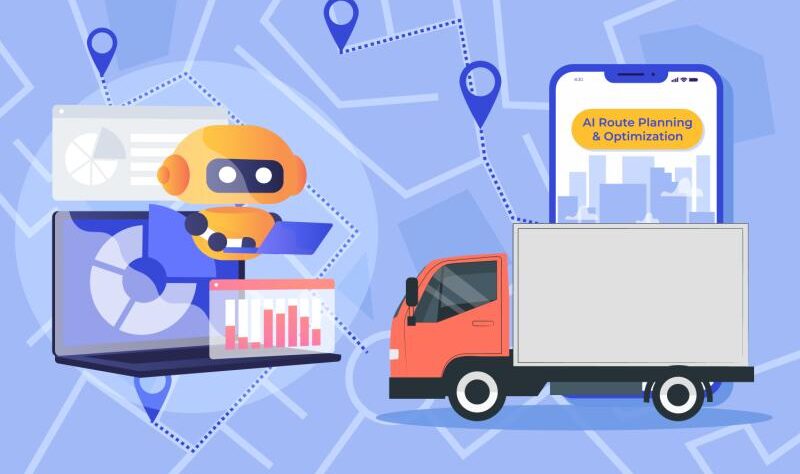Artificial intelligence (AI) is revolutionizing industries across the globe, and transportation and logistics are no exceptions. From optimizing delivery routes to predicting maintenance needs, AI technologies are transforming how goods move from point A to point B. Here are some ways artificial intelligence (umela intelligence) is bringing benefits to transportation and logistics.
Improved Efficiency
One of the most significant advantages of AI in transportation and logistics is improved efficiency. AI-powered systems analyze vast amounts of data in real-time to optimize various processes. For example, AI can evaluate traffic patterns, weather conditions, and vehicle capacity to determine the most efficient routes for delivery trucks. This results in faster delivery times and reduced fuel consumption.
Additionally, AI-based inventory management systems help organizations maintain optimal stock levels by predicting demand fluctuations. By streamlining these processes, companies can reduce operational costs and improve service quality.
Enhanced Safety
Safety is a top priority in the transportation and logistics sector. AI technologies contribute to enhanced safety through predictive analytics and advanced driver-assistance systems (ADAS). For instance, AI algorithms can analyze historical accident data and identify patterns to predict potential hazards on the road.
ADAS features, such as adaptive cruise control, lane-keeping assistance, and collision avoidance systems, use AI to enhance vehicle safety. These technologies help reduce the risk of accidents and improve overall road safety.
Better Customer Experience
AI is also enhancing the customer experience in transportation and logistics. AI-powered chatbots and virtual assistants provide real-time updates on shipment status, answer customer queries, and handle complaints, leading to improved customer satisfaction.
Furthermore, AI algorithms analyze customer feedback and behavior to personalize services and anticipate future needs. By enhancing communication and offering tailored solutions, AI significantly contributes to a better overall customer experience.
Cost Reduction
AI technologies can help organizations in the transportation and logistics sector significantly reduce costs. For example, AI-driven route optimization not only improves delivery efficiency but also leads to lower fuel consumption. Similarly, predictive maintenance systems monitor vehicle performance and identify potential issues before they become costly repairs, reducing downtime and maintenance costs.
Additionally, AI can optimize supply chain operations by accurately forecasting demand and identifying areas for cost savings. By leveraging AI’s capabilities, companies can achieve substantial cost reductions while maintaining service quality.
Sustainability
The increasing focus on sustainability is another area where AI is making a difference in transportation and logistics. By optimizing delivery routes, reducing fuel consumption, and improving inventory management, AI helps organizations minimize their environmental impact.
For instance, AI algorithms can analyze traffic patterns and suggest alternative routes for delivery trucks, reducing fuel consumption and emissions. Furthermore, AI-powered systems can optimize warehouse operations, leading to reduced energy consumption and waste.
By adopting AI technologies, companies can improve their sustainability efforts while also meeting the growing demand for environmentally responsible practices in the transportation and logistics sector.
Conclusion
The benefits of AI in transportation and logistics are significant. From improved efficiency and safety to enhanced customer experience and cost reduction, AI technologies are transforming the industry. As organizations continue to adopt AI solutions, we can expect even greater advancements in the way goods are transported and delivered.


